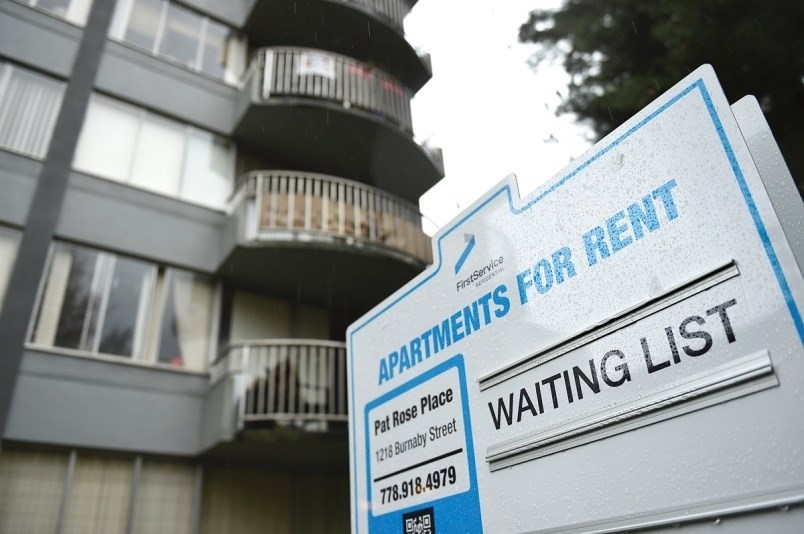Coquitlam may be leading the charge in Metro Vancouver when it comes rental housing development but it is still not enough to meet demand.
According to a staff report, there are currently 3,900 purpose-built rentals and 700 non-market rental units at various stages of development, a total that is second only to Vancouver in the region. When the units are completed, it will mean 17% of Coquitlam's housing stock will be secured rental housing.
While that is a significant increase for the municipality, it still is lower than the 35% the Canada Mortgage and Housing Corporation said is necessary to meet demand, according to Jacint Simon, the city's housing planner.
"The figure is a huge improvement from previous decades," he said, "but it still falls short."
Coquitlam is already "punching above its weight" when it comes to market rental construction, he added, largely thanks to incentives put forward by the city in its 2015 Housing Affordability Strategy (HAS).
But changes to the program are necessary to address emerging housing needs, according to a staff report. In 2020, for example, the city will review its tenant relocation and assistance policy, particularly around the timing of when tenants must vacate their units if their building is being redeveloped.
The report also noted that while HAS was designed for larger, mixed-use developments, it may be necessary to find ways of encouraging rental construction in smaller wood-frame projects.
B.C. Building Code changes mean developers will soon be able to construct taller wood buildings and "council may wish to consider other incentives that could result in more rental units being included with this type of development," the report stated.
The city is also expected to see an increase in financial requests for its Affordable Housing Reserve Fund after council approved tweaks to the program last April.
Coquitlam now has three levels of potential funding and the criteria that must be met to apply.
The first tier is a grant of up to $10,000 to $20,000 per unit, enough to cover development cost charges and permit fees. The second tier is a $20,000 to $50,000 conditional grant, with requirements to pay the money back if the project doesn’t proceed. The third tier is $50,000, with the provision of security, such as ownership of land, air space or a long-term lease.
In the first half of 2020, $8.5 million is expected to be requested from the fund to help offset the cost of 300 non-market rental units. That is up from the $5.3 million spent in 2019 for 161 non-market rental units.
Funds in the reserve come from money developers pay to obtain approvals for higher density. For example, a new condo tower at current values pays between $8 million and $10 million in a density bonus for a 40-storey tower, and about 10% or $800,000 to $1 million goes into the fund, with the rest of the money used to pay for amenities.



